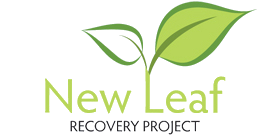Career Development – Improving Yourself After Addiction

Thinking about your career development after addiction recovery is a pivotal moment. It signifies not only a personal triumph but also the beginning of a new chapter filled with opportunities for growth and fulfilment. This transition can present unique challenges, from overcoming stigma to navigating the job market with confidence.
At New Leaf Recovery, we understand the importance of supporting individuals as they embark on this journey of career development post-recovery. Here, we offer comprehensive guidance and advice to help you thrive in the workplace while nurturing your ongoing journey of recovery.

Exploring Career Options
Re-entering the workforce after addiction recovery presents an opportunity to find new career paths and possibilities that align with your values, interests, and strengths. Whether it’s pursuing a passion, leveraging existing skills, or embarking on a new adventure, there are countless paths to explore.
Don’t rush the process. Take the time to research different industries, job roles, and organisations to identify potential opportunities that resonate with your aspirations. Consider seeking guidance from career counsellors, mentors, or friends and family. People who can provide valuable insights from an outside perspective, and give support as you navigate this exploration process.
It may be a good idea to explore unconventional or non-traditional roles that may leverage your unique skills and experiences in unexpected ways. Possibly supporting others who are on their addiction recovery journey.
Let New Leaf Support You TodayIdentifying Transferable Skills
During your journey of addiction and recovery, you have developed a unique set of skills and strengths that are valuable assets in the workplace. There’s resilience, determination, empathy, and many more important qualities.
These transferable skills can be leveraged to your advantage as you pursue new career opportunities. Take the time to reflect on your experiences and identify the qualities that have helped you overcome adversity and navigate challenges.
For example, you can demonstrate your resilience through overcoming obstacles on your path to recovery. This is evidence of your ability to persevere in difficult situations.
Additionally, if you’ve honed your communication skills through therapy or support group participation, highlight these abilities as assets that contribute to effective collaboration and teamwork. By reframing your journey in a positive light, you can showcase your strengths and potential to prospective employers with confidence.
Overcoming Stigma
Addiction carries a burden of stigma, often leading individuals in recovery to feel ashamed or fearful of disclosing their past struggles in professional settings. But it’s essential to recognise that addiction is a disease, not a moral failing. And recovery is a courageous and commendable achievement.
By embracing honesty and transparency about your journey, you can challenge misconceptions and foster a culture of understanding and acceptance in the workplace. To address and overcome this challenge, it is essential to cultivate self-confidence and resilience.
Surrounding yourself with a supportive network can be encouraging and strengthening for you. Moreover, to reflect on past experiences in a positive light, and emphasising personal growth and determination, can help combat stigma and demonstrate readiness for employment.
Think about your future todaySetting Realistic Goals
Setting realistic and achievable goals is essential for maintaining motivation and momentum as you navigate the process of re-entering the workforce. Breaking down your end goal into smaller, manageable steps that align with your aspirations.
Whether it’s updating your resume, networking with professionals in your desired field, or acquiring new skills through training or education. Each milestone brings you closer to your ultimate goal of securing meaningful employment.
It’s also important to acknowledge and celebrate your progress along the way. No matter how small you may feel the achievement is. By recognising your achievements and acknowledging the effort you’ve invested in your journey, you reinforce your sense of self-worth and resilience.
Also, don’t be afraid to adjust your goals as needed based on changing circumstances or priorities. Flexibility and adaptability are essential qualities that will serve you well as you navigate the twists and turns of your career path.
Balancing Work and Recovery
Maintaining a healthy balance between work and recovery is essential for sustaining long-term success in your ongoing journey of recovery. Prioritise self-care practices such as exercise, meditation, and therapy. Establish boundaries and routines that allow you to prioritise your health, even with the demands of a busy work schedule.
Comunication is key when it comes to balancing work and recovery. Don’t hesitate to advocate for your needs and seek support from your employer, colleagues, or support network. Whether it’s requesting flexible hours, accommodations for medical appointments, or additional resources for mental health support. Proactive communication can help ensure that your workplace environment is conducive to your recovery journey.
Remember that self-care is not selfish. It’s essential for maintaining your overall well-being and effectiveness in both your personal and professional life.
Contact New Leaf Recovery for Support
Considering your career development after addiction recovery is a significant milestone that deserves celebration and recognition. Remember that you are capable of achieving great things, and with the right support and resources, anything is possible.
At New Leaf Recovery, we understand the unique challenges that come with returning to work after addiction recovery. Our team of experienced professionals is here to provide comprehensive support and guidance to help you and your loved ones.
We’re committed to empowering you to achieve your goals and thrive in both your career and recovery. Contact us today to learn more about our services and how we can support you on your path to success.
Speak to our team todayReceive a Free Call Back
"*" indicates required fields
Our Complete Recovery Journey - from your initial enquiry, all the way through treatment and beyond into ongoing support, New Leaf Recovery are there to guide and support you.
New Leaf offers a complete journey of treatment - from initial detoxification and rehabilitation to ongoing support, including aftercare, family support, and beyond into long-term recovery.
Getting the right accommodation enables us to provide the right backdrop for our recovery methods. Any form of rehabilitation needs to happen in a safe, comfortable, secure and friendly environment.
Receive a Free Call Back
"*" indicates required fields










